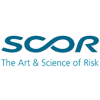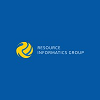The Data Science Team has the responsibility of increasing our data science knowledge (survival analysis, model interpretability, etc) and spreading data science knowledge within the division.
Representing the Data Science Chapter, the Data Science Team provides technical assistance (such as algorithmic or machine learning techniques) in business projects.
As a member of the Data Science Chapter, the Senior Core Data Scientist will develop and manage advanced statistical, predictive, and machine learning models, as well as provide technical expertise to a growing cross-functional team of data scientists, underwriters, and actuaries.
They will help innovate the medical underwriting process by creatively applying cutting-edge data science techniques.
- Support the development of advanced statistical, predictive, or machine learning models
- Increase the interpretability of models through advanced understanding of artificial intelligence and machine learning
- Explore cutting edge machine learning methods and tools
- Be a key distributor of knowledge within SCOR globally, increasing the interpretability of models through an advanced understanding of artificial intelligence and machine learning
- Make key contributions to the projects from the Americas market (US / Canada) as first priority but also be a core contributor on global projects, such as OCR, NLP, AutoML, visualization and templates
- Collaborate with SCOR’s thriving global data analytics community by being a key contributor on research projects
- Spread data science knowledge internally and externally through seminars and publications
- Present results to stakeholders; clearly communicate complex topics
- Support the team on applying best practices in code development
- Support strategic innovation initiatives for the Americas markets to transform processes (e.g. underwriting) from a machine learning perspective.
- Adhere to all Information Security policies and best practices, including security awareness training and other information protection initiatives.
- Have a high degree of autonomy when developing models and determining the appropriateness of a given approach
- 3-5 years’ experience in data science with strong programming capabilities and advanced knowledge of supervised / unsupervised machine learning techniques
- Deep understanding of predictive modeling concepts, machine-learning approaches, clustering, classification and crowdsourcing techniques (e.
g. GLMs, Decision Trees, SVM, Random Forests, GBM, PCA, Bayesian Networks, Neural Networks, etc.)
- Strong critical thinking skills and ability to learn quickly
- Ability to communicate, educate, and advise members of the global data science community on predictive modeling concepts, machine learning approaches, clustering, classification and crowdsourcing techniques (e.
g. GLMs, Decision Trees, SVM, Random Forests, GBM, PCA, Bayesian Networks, Neural Networks, etc.)
- Good technical expertise on cloud computing platforms such as AWS and Microsoft Azure (or sufficient basics to learn quickly the usage of cloud technologies)
- Expert knowledge of common data science programming languages such as Python (preferred) or R
- Experience in using best practices for Python (unit tests, static typing, )
- Experience in using CI / CD
- Expert knowledge of OOP code architecture
- Experience in usage of Docker and containerization
- Experience in usage of distributed version control systems like Git
- Experience of using machine learning to develop high-quality and practical solutions
- Experience with database query tools such as SQL
- Insurance industry experience is preferred, but not required
- Actuarial exam progress is a plus
- Experience in using Generative AI tools is a plus
Required Education
- Master’s degree (PhD is a plus) in science, technology, engineering, mathematics, computer science, actuarial science or similar quantitative field
- Bachelor’s degree plus actuarial qualifications, or similar work experience, is accepted in place of a relevant Master’s degree.









